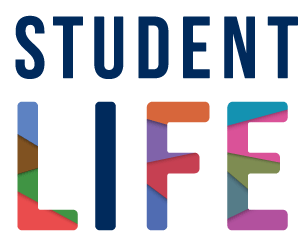You’ve organized your essay and crafted a well-developed research question. You’ve gathered your sources and taken notes from your reading. Now what? Sometimes the volume of research material you’ve gathered can seem overwhelming. To synthesize your research means forming it into a coherent whole.
Consider the following three questions to help you synthesize your findings.
Do your sources speak to your research question?
Your sources are the evidence that backs up the overriding argument of your paper. This means any research that you cite in your essay should be relevant to your research question. Consider the following:
- In what way is each piece of information relevant to your research question?
- Does each source support your central claim?
- Did you come across arguments that go against your claim?
- Does the source provide essential background information?
Any research that isn’t relevant to the overall argument or sub-arguments you’re making can be left aside.
Is any of your material in conversation with other material?
Sometimes you may come across sources that contradict each other or your own argument. To make your argument as strong as possible you want to acknowledge these contradictory positions and support your reasons for disagreeing. The strongest essay will address any counter positions.
You may also come across sources which strengthen each other’s arguments. Multiple sources supporting the same or similar claims are very strong sources to draw from.
Are there gaps in your information?
Assess your argument for gaps:
- Does your information contain sub-questions that are unanswered?
- Are any of your sources unreliable?
When you recognize gaps in the evidence for your argument, go back and see if you can fill these gaps or find more reliable sources. If this isn’t possible, acknowledging the gaps in your argument is important.
Further considerations
Part of doing good research is maintaining your academic integrity. This involves citing your sources appropriately and developing your writing skills, like using quotations and paraphrasing.
These three questions are taken from Synthesizing Your Research Findings (n.d.). Retrieved August 28, 2020.
Helpful tools and resources
- Seven Grandfathers in Academic Integrity (PDF)
- Writer’s Block (PDF)
- Standard Reference Formats (PDF)
- How Not to Plagiarize (PDF)
- University of Toronto Writing Centre resources
- RefWorks (University of Toronto Libraries)
Other U of T resources:
- U of T Libraries
- Article Search
- Ask a Librarian: Online chat service
- Office of Student Academic Integrity (OSAI)
Apps and assistive technologies
- Zotero: An easy-to-use tool to help you collect, organize, cite and share research. Mac, Windows & Linux, free.
- RefME: Automates bibliographies, reference lists and citations. Android, free.
Students with disabilities may receive academic accommodations including the support of assistive technologies. Please contact Accessibility Services for more information.
Disclaimer: the University of Toronto does not officially endorse the apps and sites listed here, and may not be held responsible for any technological problems that arise from their use. Please use at your own discretion.
-

Associated Programs
Grad Student Workshops
Learn evidence-based strategies and perspectives to meet grad-specific work and learning challenges.
Learn more about Grad Student Workshops -

Associated Services
CLSS resource library
Explore our handouts and tip sheets on academic skills. Learn more about CLSS resource library




